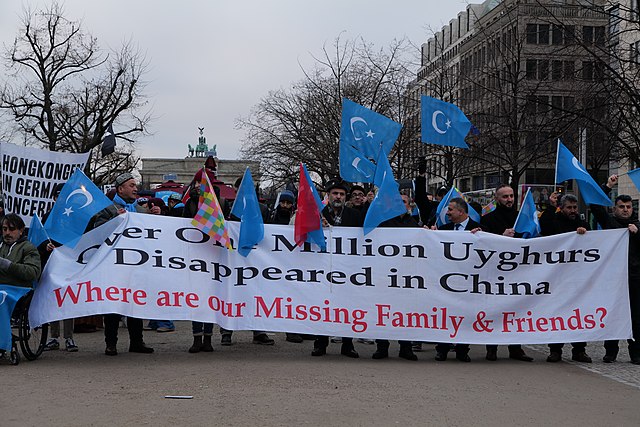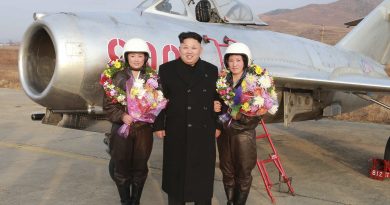OHCHR Report on Uyghurs: Too Little, Far Too Late
Kiara McGaughey
Staff Writer
On August 31, the Office of the United Nations High Commissioner for Human Rights (OHCHR) issued a report assessing human rights violations in China’s Xinjiang Uyghur Autonomous Region. China has been forcibly moving much of its Uyghur population to concentration camps, which it calls “re-education camps,” to combat “terrorism” in the ethnic Muslim minority community. According to the UN, the commission’s report stated that the deprivation of fundamental human rights, arbitrary detention, and credible reports of torture, ill-treatment, forced medical treatment, and sexual violence may amount to crimes against humanity. While the report may seem like a positive step to holding China accountable for its atrocities, it comes five years too late.
Information regarding the camps in Xinjiang has been public knowledge since 2017. In 2017, on the Chinese internet, Xinjiang officials announced the forcible transportation of Uyghurs, Kazakhs, and other ethnic minorities to “re-education camps.” In 2018, satellite footage of the camps was seen on some Chinese websites and became public knowledge internationally. Users could view the images through the Wayback Machine or the internet, before they were deleted, reports the Atlantic. In 2018, Reuters additionally published satellite footage of 80 different camps, 39 of which were clearly visible and expanding rapidly. Reuters explained that the camps were nearly identical in structure, evidence that serious planning went into the rapid creation of these camps. Civilians in the region also reported that one could be sent to a camp for practicing their religion. The whole world, including the UN, has known since 2018 that there was substantial evidence that Uyghurs were being arbitrarily detained and forcibly moved, both of which meet the legal criteria to be considered crimes against humanity.
The real question, then, is why the UN waited so long to investigate and report on these camps. The report was published on the last day of Michelle Bachelet’s four-year term as UN High Commissioner for Human Rights, according to UN News. Bachelet, a former president of Chile, could have acted at any time in the past four years, but only decided to investigate the issue this year with a visit to China in May, after the United States officially called the atrocities in Xinjiang ‘genocide,’ The Washington Post reports.
The United Nations is structured in such a way that it is almost completely beholden to the will of states, especially superpowers. China, a superpower with a convenient permanent membership to the UN Security Council, has undue influence on the UN’s actions. China’s power means the human rights council’s votes can be easily swayed by China’s interests and alliances with less powerful states, CNN reports. The UN also cannot investigate unless they are given consent from China to do so. The UN’s structure does not allow it to protect human rights; everything – including who is considered human – is determined by the states themselves. Thus, fearful of backlash from one of the world’s most powerful countries and its allies, the UN remained silent for five years. Even now, though the report was published, it will reportedly not be addressed at the Human Rights Council’s session this September, according to CNN.
The UN’s lack of action in this human rights catastrophe is not a new story. Though it has a Human Rights Council, the UN has a bad track record in genocide prevention. Its responses to the Rwandan Genocide, the Bosnian Genocide, and the atrocities in Darfur were all massive failures. Human Rights Watch recounts the UN’s most egregious failure in Rwanda, wherein civilians were left behind by peacekeepers, while high government officials or diplomats of other countries were taken to safety. Human Rights Watch also recounts Srebrenica, declared a safe zone by the UN during the conflict in Bosnia, and described how the safe zone fell due to peacekeepers’ refusal to help and then destroying evidence of severe human rights abuses after the fall. BBC News spoke with UN Official Aicha el Basri in 2014, who explained that UN Peacekeepers responding to Darfur watched as civilians died in front of them and did not intervene. Basri also claimed that Ban Ki-Moon failed to mention in official reports that the government had bombed villages 106 times.
The UN, because of its careless attitude towards atrocities, cannot be trusted to stop the genocide in Xinjiang. It is beholden to a genocidal state, and its actions are uncertain and weak. The countless who were brutally murdered can never be brought back, and the damage done to communities destroyed by the Chinese government can never be undone. The UN indisputably failed to respond, and these five years of inaction can never be undone.


